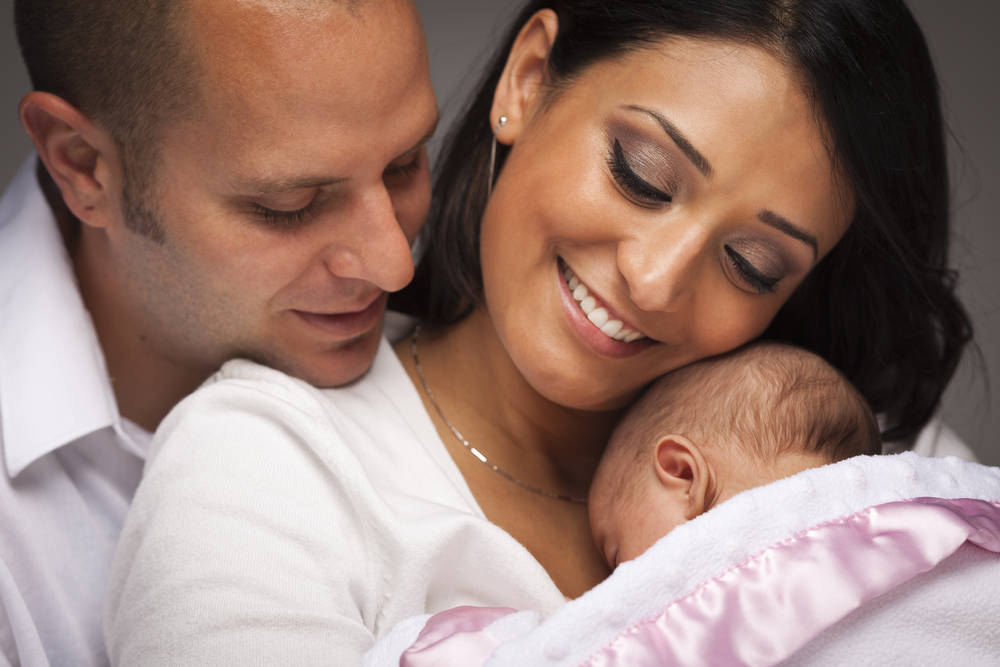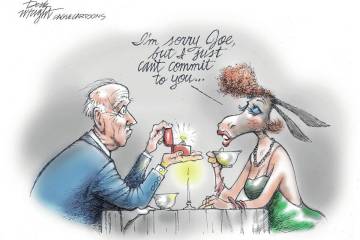COMMENTARY: American views on race are rapidly evolving
For the past decade, the narrative of an upcoming Hispanic demographic tsunami has been alternately energizing and scaring people into believing that America will eventually become Latinized beyond recognition.
Don’t worry, it isn’t going to happen.
I recently attended a Latino studies forum at an urban university boasting a student population that is 39 percent nonwhite. The diversity in the room was astounding: Latinos 17 to 60 who represented families living in this country since the 1600s, as well as those who have been here for only a few years.
There were Hispanics of every race, many that were biracial and more that were merely bicultural, with delightful combination names like Bruce Hernandez and Esmeralda Rosenstein or names that didn’t “sound” Latino at all.
This is the trend.
Last week, the Pew Research Center released an analysis of census data showing that in 2015, one in six American newlyweds married someone of a different race or ethnicity.
This represents a fivefold increase in the past 50 years According to Pew, the most common intermarriages in 2015 were between someone of Hispanic ethnicity and someone who wasn’t Hispanic.
Those marriages accounted for more than half the total, with most of those Hispanics marrying non-Hispanic whites.
These intermarriages are ushering in changes to how society perceives ethnicity and race.
“Demographers have not taken into account how the perception of race is likely to change in the coming years,” wrote Herbert J. Gans, a professor emeritus of sociology at Columbia University, in The New York Times, in reference to the U.S. Census predictions of a majority-minority population as soon as 2040. “For example, whites are already seeing the descendants of some Asian and Latino immigrants as being similar to them. Consequently, whites treat them as white. This ‘whitening’ process will only increase in the future.”
But if there’s such a thing as reverse-whitening, that’s happening, too. People are increasingly deciding for themselves what ethnicity or race they identify as.
In 2015, Mark Hugo Lopez, the director of Hispanic research at the Pew Research Center, told me that there were approximately 2.1 million to 2.5 million people who say they have an ancestry that is Hispanic but don’t identify as such.
And the opposite can also be true.
There are even some who are starting to consider whether racial identity can, or should be, as changeable as gender identity.
Writing in the spring issue of the academic feminist philosophy journal Hypatia, Rebecca Tuvel, an assistant professor at Rhodes College in Memphis, wonders whether it is possible or acceptable to change one’s race in the way some change their sex.
In her article, “In Defense of Transracialism,” Tuvel says, “I argue that considerations that support transgenderism extend to transracialism. Given this parity, since we should accept transgender individuals’ decisions to change sexes, we should also accept transracial individuals’ decisions to change races. I entertain and reject … objections that suggest a society should not accept an individual’s decision to change races. … I conclude that if some individuals genuinely feel like or identify as a member of a race other than the one assigned to them at birth — so strongly to the point of seeking a transition to the other race — we should accept their decision to change races.”
This dissatisfaction with the traditional ways to self-segment and build identity is at the root of why, in the years to come, America will not be embroiled in a race war: The races will find a way to intermingle.
Just as was the case back in 1967, when the Supreme Court decided in the landmark Loving v. Virginia case, which recognized the right to intermarriage, some people will be open to and comfortable with the melding and mixing of different ethnicities and races.
Others will have no choice but to deal with the opportunities and challenges of a thoroughly interracialized society.
Contact Esther Cepeda at estherjcepeda@washpost.com.




























